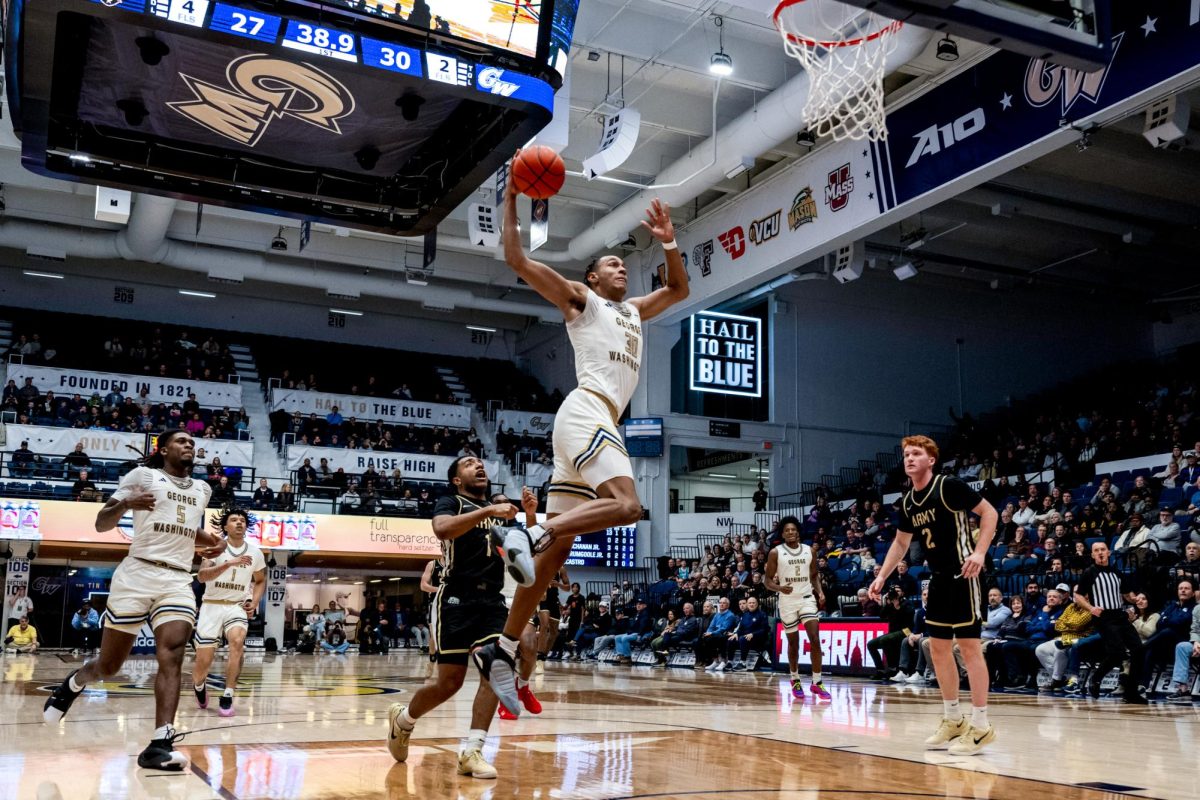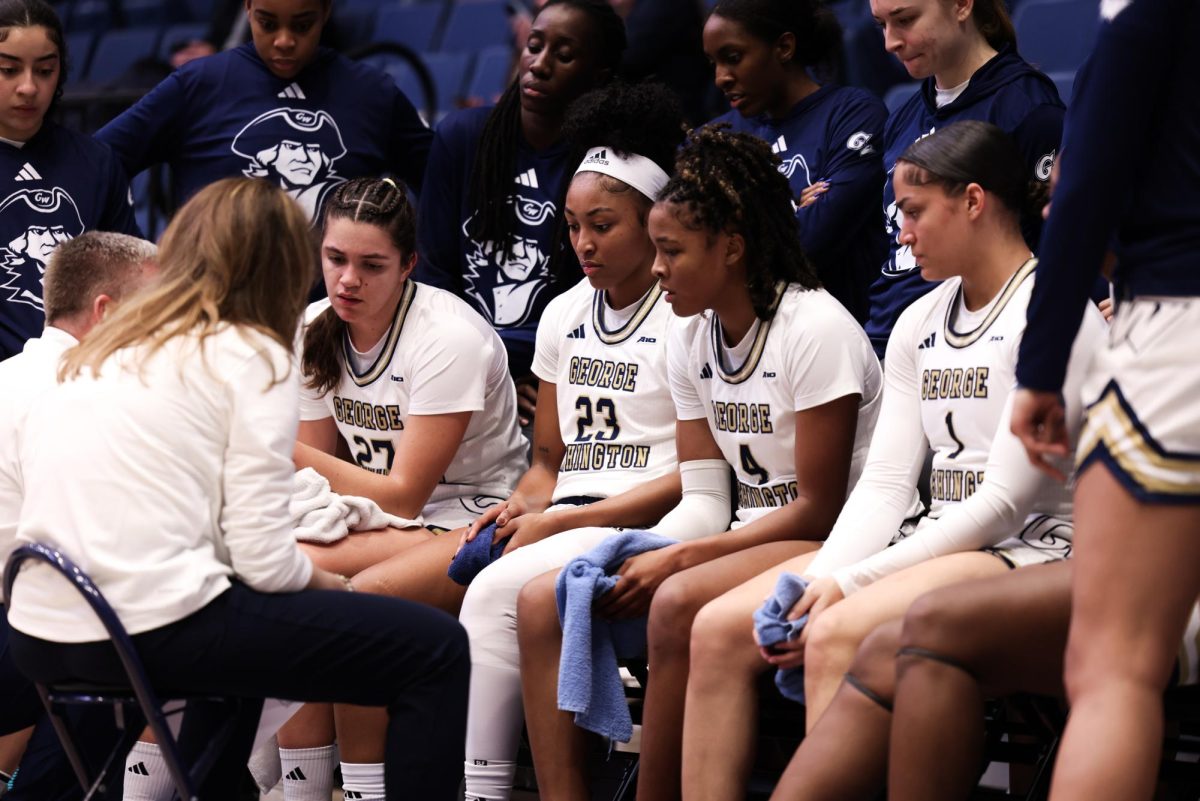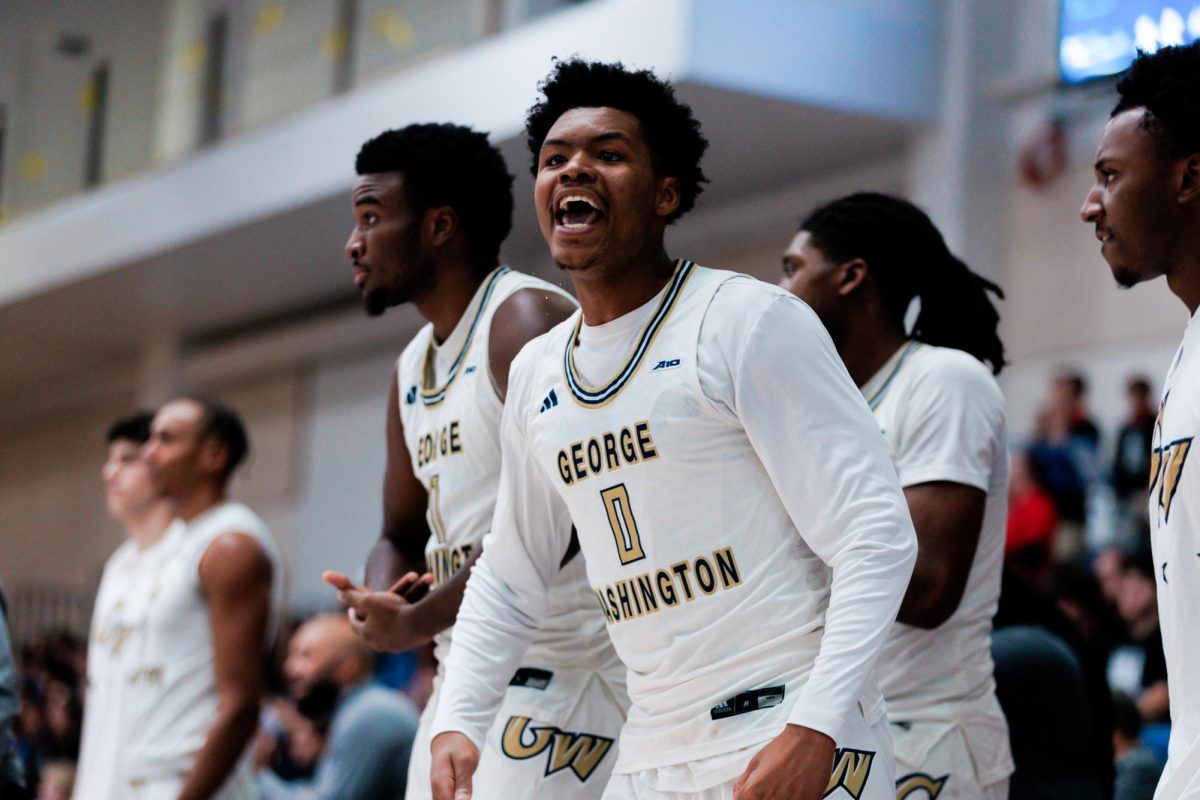After two tumultuous seasons that saw GW’s men’s basketball team fall from postseason regular to Atlantic 10 cellar dweller, Senior Vice President for Student and Academic Support Services Robert Chernak has a message for the team’s supporters: hang tight, we’re working on it.
Chernak, who oversees the school’s athletic department, sent a letter last week to men’s basketball season-ticket holders expressing the administration’s support of the program and highlighting the changes in store for the upcoming and future seasons.
“We’re trying a variety of strategies to improve communication with our season-ticket holder base,” Chernak said. “After a couple of tough seasons, going forward, we want to try to at least sustain their interest in continuing their support.”
In addition to being mailed to season-ticket holders, Chernak’s letter was posted on popular Colonials basketball Web site, GWHoops.com, in a thread titled “Letter to Loyal Fans.” In it, he wrote that the program is “working hard to make tangible improvements on many fronts,” including player recruitment, nonconference scheduling and the ongoing Smith Center renovations.
Chernak said the letter is “only the beginning” of a more comprehensive approach that will eventually include letters from Director of Athletics Jack Kvancz and head coach Karl Hobbs. The strategy is a collaboration between a number of higher-ups in the athletic department, Chernak said, and it aims to “professionalize” the dialogue between the program and its supporters.
“We just want to let them know that we care about what they think,” Chernak explained. “We’ve listened to what they’ve said and we’re trying to address it.”
Such outreach is new. After arriving at GW in 2001 and inheriting a program that had recently endured multiple controversies, Hobbs turned the Colonials into mid-decade, A-10 powerhouses, winning the conference’s regular season or postseason championship and appearing in the NCAA tournament from 2005-2007.
Support is generally a given in such successful times, but the team’s recent downturn – consecutive 13th place finishes in the 14-team A-10, leaving them out of the conference’s postseason tournament – has provided an impetus to actively seek it.
“When things are going well sometimes you don’t have to worry about those kinds of strategies,” Chernak explained. “But I think that any realist would come to the conclusion that this year was going to be different.”
Chernak, himself a former basketball referee and fan of the sport, said that he can sympathize with fans who may be growing restless with the team’s apparent direction.
“I understand why people are disappointed, ” he said. “But our job is to try to turn that around on the court and in the stands.”
In the end, Chernak said that he and those involved with the outreach think that the letter and accompanying message will resonate with its audience and harbor goodwill as the program looks to right itself in the near future.
“We believe it might get people to think more seriously about sticking with us and having some hope for the future,” he said.






